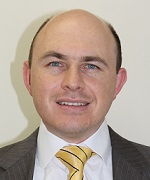A new definition of total and permanent disablement in superannuation that has recently been rolled out by AustralianSuper has been questioned by an industry stakeholder, who says the new wording may make it more difficult to get claims paid.
Introduced with a range of other changes to AustralianSuper’s insurance arrangements effective from 1 November 2014, the new TPD definition, underwritten by TAL, contains the following wording:
‘You will be considered totally and permanently disabled if…
- …At the end of three months in a row, your injury or illness means means that you’re incapable of ever working in any job that you are suited to based on your previous education, training or experience, or any job that you may reasonably become suited to with further education, training or experience. This will be decided by considering things such as:
- What re-skilling, training or voluntary work you have done already,
- Any retraining or reskilling you reasonably could be expected to do, and
- Any rehabilitation you have done already or any rehabilitation you reasonably could be expected to do.’
The new definition will apply to new and existing members of AustralianSuper. Claims in progress on 1 November 2014 will continue to be assessed under the existing arrangements. Members currently receiving benefits will not be impacted. Only claims arising after 1 November 2014 will be assessed under the new arrangements.
…the best outcome for members who suffer a disability is for them to get back into the workforce
AustralianSuper’s Product Manager, Insurance, Richard Weatherhead, said the changes had been designed to ensure the long-term sustainability of the fund’s insurance offer.
“TPD is designed to provide a benefit if a member is permanently incapable of working. One of the fund’s fundamental beliefs is that the best outcome for members who suffer a disability is for them to get back into the workforce. So the approach taken by AustralianSuper is, wherever possible, to work with the member to seek their rehabilitation back into the workforce.
“That said, retraining or rehabilitation is not obligatory in order to be eligible for a TPD benefit. If a member chooses not to undertake retraining or rehabilitation, then their claim will still be considered on its merits, although their potential for retraining/rehabilitation will be taken into account when assessing the claims. Unfortunately, in many cases, the disabilities involved will make retraining and rehabilitation impossible, and in these cases, the new provisions will have no bearing on the ultimate claim decision,” Mr Weatherhead said.
He also noted that AustralianSuper provides default income protection cover, which replaces 85% of income while the member is temporarily disabled. This means the member gets financial support immediately after the waiting period, but in the more severe cases, where they are incapable of working again, they will receive a TPD lump sum.
Under new legislation, which took effect from 1 July 2014, superannuation funds can no longer offer ‘own occupation’ TPD. Changes also apply to the types of additional benefits and features that are available for income protection polices held inside super (see: Insurance in Super Still Viable Option). AustralianSuper said it expected other funds and their insurers would be making, or had already made, similar changes to their insurance definitions to align with this legislation.

However, Russell Cain, CEO of life insurance comparison service, xLife.com.au, said the new wording was “concerning”.
“I have been involved in the industry for almost 10 years and I have never seen a total and permanent disablement definition which includes the wording ‘or any job that you may reasonably become suited to’,” Mr Cain said.
“My concern is that the insurer may try to see if you can potentially be retrained, re-educated or gain experience in another occupation before you meet the definition and be eligible for a claim – meaning many people will not receive a payment.”
Mr Cain also expressed his concern that AustralianSuper and TAL have not set out a timeframe within which the claim will be assessed.
“As far as I can tell, no time limit has been set for this to happen – how long will it take for the insurer to realise the member cannot be re-trained, re-educated or gain experience before the definition is met and you qualify for the lump sum benefit?”
Mr Cain urged members, and advisers with clients who hold insurance inside industry super funds, to make sure they understood what coverage was provided.
“You should explore your options and see what else is out there – a ‘retail’ life insurance policy, for example, can be funded by your superannuation but includes better definitions and is guaranteed renewable – meaning the insurer cannot change your existing policy definitions to make the policy inferior,” Mr Cain said.
To view a list of the other insurance changes, which include changes to the amount of basic cover provided for members under age 21, and a reduction in the amount of cover that can be added without underwriting, click here.




Provides a good qualitative reason to move to another TPD policy.
This kind of thing comes as no surprise !
Insurance companies have a happy knack of clouding the waters when it comes to claims. Offering cheap premiums coupled with tardy underwriting in pursuit of the mighty buck have been the way they have operated.
In terms of TPD cover in or out of super, what’s often lost is the tax liability of 21.5% that applies to payouts to claimants under age 55 in super.
If you’re a serious adviser, looking after the “clients interest”, you’ll write the cover as a Stand Alone product out of super, offering better contract terms, with no tax consequences.
Unless the policy holder has a Christpher Reeves style injury, this policy will never pay out. Having said that even Mr Reeves may have been paid for speaking engagements. It’s a joke and I forsee there are going to be many many disputes.
TAL is on a winner there, all that premium and no payouts, let’s wait and see which Industry Funds follow.
I have just read the attachment and I’m more concerned at the offer of over the phone advice on establishing TTR strategies, switching investment options and transferring to pensions etc for a fee of $295 – deducted from their super! Can someone please explain how that could possibly even come close to satisfying the client’s best interest duty. One rule for industry funds, another for the rest of us.
Alas, Mr Cain’s response is of no surprise. The comparison or ratings houses seem to not understand the issues facing the life industry and the urgent need to implement more sustainable solutions that are fair to all those involved. This means a need to balance paying appropriate claims while making it affordable. Rating houses have made a living from saying that the policy that is most lenient is ultimately the best, and look how that’s working out: many industry funds are seeing premium rates doubling or more. Heavens, imagine expecting someone to be asked to retrain and seek employment (which of course has been shown to have a positive influence of quality of life) before they are deemed to be totally and permanently disabled.
Well, let’s now compare the pear.
Problem is that Fofa and industry funds have smashed this industry- it’s no longer viable to see a smaller client- the industry funds can get away with whatever they want.
False Confidence Pervades Aussie Insurance Market… heading of another article in this edition.
Ironical isn’t it – TAL publishes survey = people have false sense of security that they have enough cover = probably propaganda re insurance in their super = public are mislead.
Next…. lets reduce the availability of a payment and make the book sustainable = TAL .
Ironical isn’t it that TAL will make their business model sustainable at the expense of the unassuming population in which “false confidence pervades”.. because of misleading advertising everywhere they turn.
Love it – now we have even more reasons to pull clients out of Aust Super and give them the certainty they deserve with guaranteed renewable (true) options …. and leave all the substandard risk in there as another legacy for TAL to deal with.
“……..Meanwhile, in other TAL news, the insurer has been recognised for its contribution to the global insurance market, receiving two awards for innovation and technical leadership…..”
Seriously? Looks like innovated stripping of coverage for unassuming consumers to me.
“Sustainability” at the expense of previously legitimate claims, really! Where was the sustainability when the ludicrous AAL’s for this fund were originally introduced….surprise, surprise that at the end of the original rate guarantee not one company in the market would touch this irresponsible, unrealistically priced group scheme. Wonder about the bonuses for the outgoing management who captured all those wonderful early premiums & somewhere in that period of time they won industry awards – call the cops!!
Can somebody please explain what is so unfair or unreasonable about NOT paying out a TPD benefit it the person has the capacity to be retrained and re-enter the workforce? Don’t we call people who CHOOSE not to find work when they are able to ‘bludgers’?
I think everyone would agree that a brain surgeon should not be expected to retrain as an accountant or something completely different to their past education, training or experience. But if they could gain qualifications that would enable them to teach or perform other medical work, why is that a problem? They can always purchase “own occ” if they wish, but why should they be deemed TPD under an “Any Occ” definition when there is lots of other work they could be suited for with a reasonable amount of retraining?
Contrary to the fear-mongering, insurers don’t have an indefinite period in which to assess the claim. The SCT and courts have penalised many with interest costs when the decision not to admit has been unreasonable.
Any Occupation ( and thereon in ‘suited’ borders upon the verge of unfair contract and in fact this has been tested in the UK courts. It was found that Any occupatiuon could NOT be substantiated.
Either price on an Own Occ basis and look big when payout time comes or don’t bother at all! Its far too easy for insurers to rely on this ‘get out ‘ clause which in my view should be outlawed
I think Technical View has hit it on the head to be honest, but for those of you trying to make this an Industry Fund vs “Other” argument, you’re kind of wasting your time, as don’t be overly surprised when your Retail products follow suit!!!
At the end of the day, the Courts have taken the product definitions in a direction no one could have expected, with Claimants who are still working being paid TPD benefits (I wasn’t aware it was a lottery, but case law may say otherwise). TPD is not meant to be paid on people in comas only, but it’s also not for those who simply can’t be bothered to work anymore either.
Change needs to occur across all Products (Industry Fund, Corporate Scheme, Retail & Direct) as that is the only way our industry will remain affordable for the public, and we will actually have a future!!
Any occupation (and also thereonin ‘suited’) borders on Unfair Contract and in fact the courts in London have judged upon this. Any Occupation definitions cannot be upheld. Therefore firms should either price on own occ, then pay the claims and look big when the time comes….or dont bother providing the cover at all.
This change is simply a get out clause for insurers and data proves hardly ANY claims would be paid.
This is much more to do with claims management and weeding out the few bogus claims that occur from time-to-time
Comments are closed.